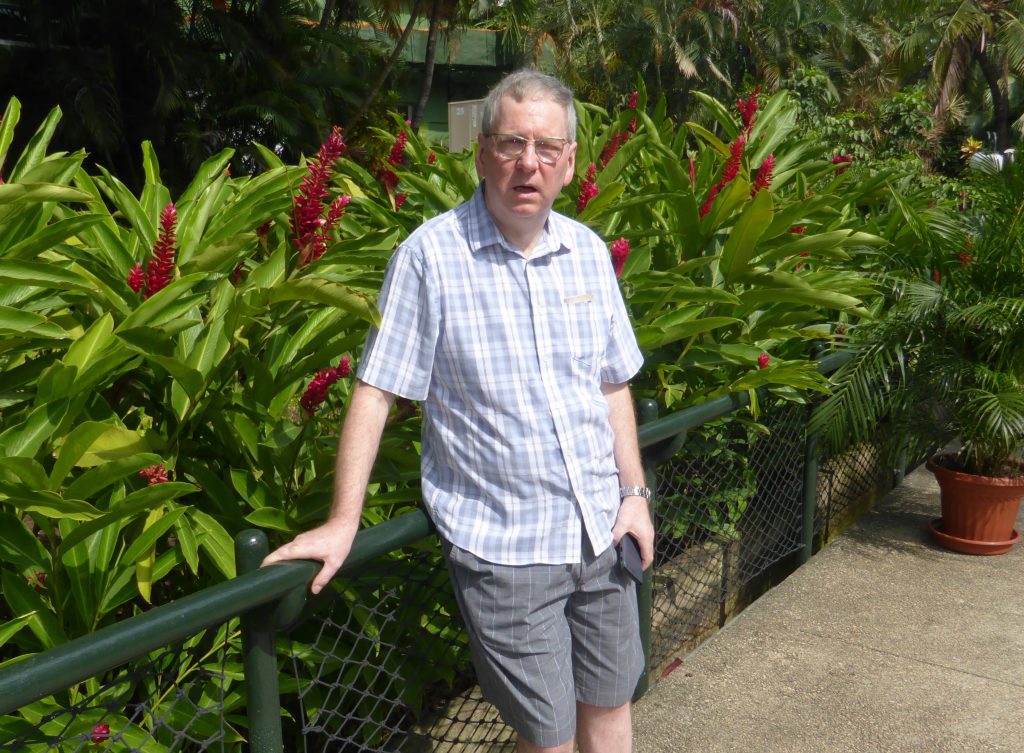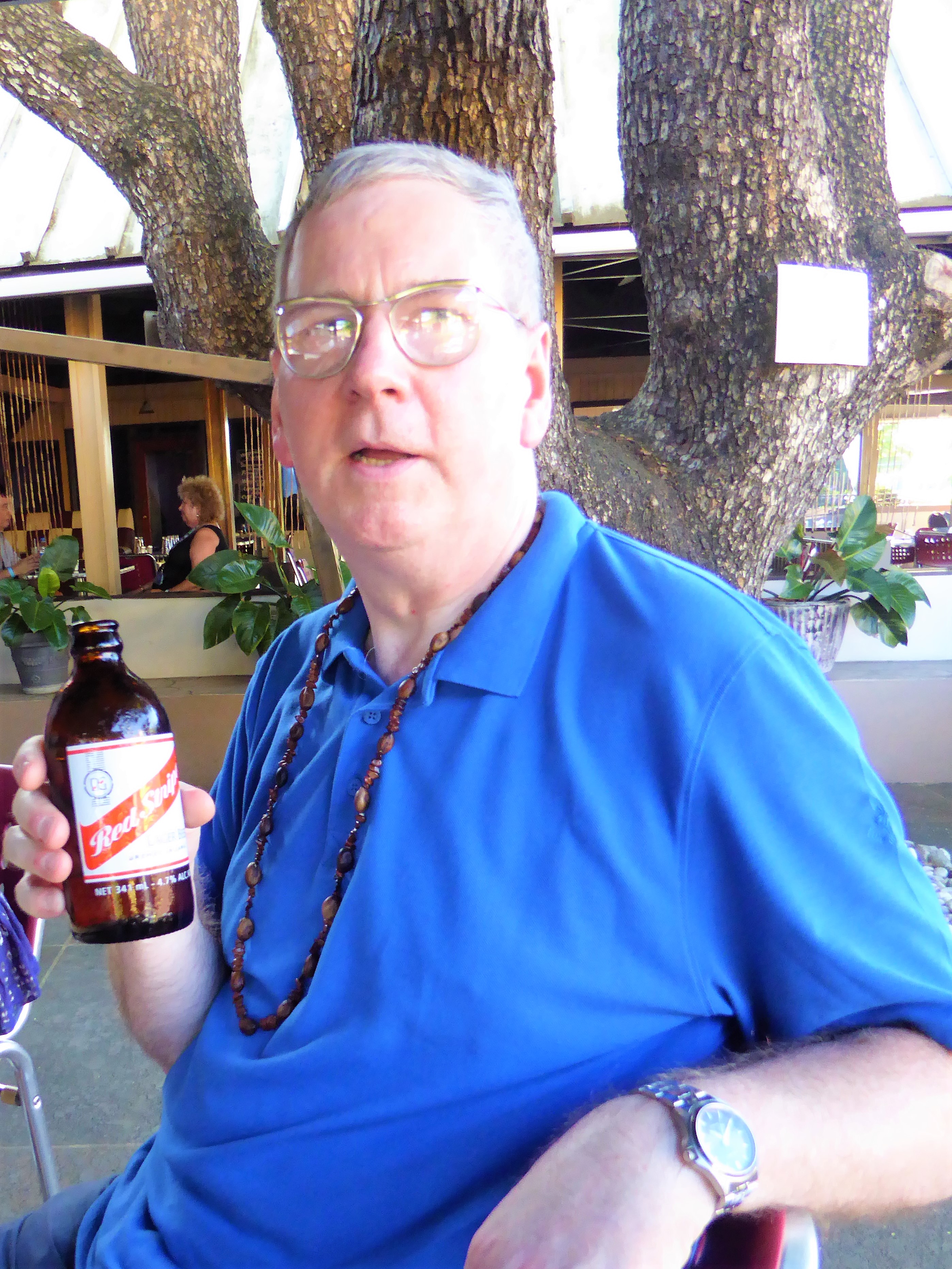What is MND
Find support
I have MND
I am supporting someone
Get involved
Research
About MND Scotland
What’s new?
© MND Scotland 2026
© MND Scotland 2026

John, who worked in logistics for 40 years, rising through the ranks to a senior role, took voluntary redundancy in 2013 and not long after this he started to notice something wasn’t right.
He said “I thought there was something wrong with my knee and ankle, so that was the beginning of the testing. I started at the physio but they soon referred me to a neurologist. I wasn’t diagnosed until 2017 because I have a slower progressing form of the disease. It’s like finding a fault with a car – you go for the most obvious things first and then rule them out. I think the doctor knew a while before he told me, or had a good idea anyway but four years was a long journey.
“I knew what MND was but you never think it’s going to happen to you. I’m very positive and upbeat and I took the news quite well. Within a month I’d accepted what had happened and decided not to let it get to me. Some people take the news badly, but I thought – okay you have this, there’s nothing that you can do. Don’t let it get you down. I’m going to keep living my life as normally as possible, for as long as possible.”
Still living independently, John has been involved with Partick Community Council as Chairperson for around seven years; he is also on the Board of Partick Works Limited, a subsidiary of Partick Housing Association and as former Chairperson of PWL, and is very aware of the community given the time he has been involved within it.
“I loved my job as a logistics Manager but after taking voluntary redundancy I decided not to go back to work. One, because at 59 it’s much harder to get a job but also my symptoms had started and I thought it was time to take a step back and wind down, and your health comes first. Plus I was going to get some of my pensions when I turned 60 anyway.
“It was the best thing I ever did. I don’t need or have the hassle and the stress of the modern workplace now. I still do lots of voluntary work in the community and like to keep active. I don’t want to be left with nothing to do at all. I can’t imagine sitting here all day watching day time television, as that would be a backwards step for me.
“I’ve heard of so many people who when they retire don’t do anything, and then they’re gone. Or they get an illness and don’t fight, or don’t try to fight anyway. I say “don’t let the bastard get ye!” You have to be positive because you just don’t know what’s round the corner.”
Although John has a positive outlook on life, having always had a passion for music and radio, he does worry about losing his voice to MND.
“Thankfully I have a slow type of the disease. One thing that does annoy me is my voice is slightly affected. I think I can probably cope with the rest in some kind of way but I used to do hospital radio and my voice is a big part of my life given my passion for broadcasting. The man who trained me also trained Ken Bruce, Charles Nove, Iain Purdon and Dave Marshall, to name a few who went into the world of broadcasting or the media.
“I volunteered for The Hospital Broadcasting Service in Glasgow, broadcasting to around six hospitals in Glasgow and Paisley. I started off at the bottom and worked my way up. If you show commitment and work hard you move up. I started on the presenter training programme delivered by the late Eric Simpson who co-founded the station, and surviving his strict and thorough training schedule I got my first show. I became a supervisor for one of the evenings, then progressed to be on the executive committee and moved on to become Programme Director, training others and scheduling the shows and presenter roster. I loved it as it was a matter of pride to have trained someone and given them a new set of skills to use.”
John and his partner Diane of 14 years also love going on holidays together.

Speaking about the support from MND Scotland he said, “I’ve been to an MND Scotland support group which was good. The group is at Ibrox so being a true blue I was keen to go” he joked. “It was nice to meet other people going through something similar. I spoke to a few people who were going off on holiday so it’s good to see others with a good positive attitude. I also get MND Scotland’s complementary therapy. It’s great and I find the massage really beneficial to me.”
For MND Action Week 2019, we’re calling on you to imagine what it would be like to have MND and to take action to end MND forever.
“I see all of these people fundraising and doing things for MND Scotland and it’s brilliant. There’s so much to get involved in to raise money for a cure. The drug companies aren’t interested unless it makes them big money, but the form of MND I have is really rare. We need the funding, without the funding we can’t get the researchers to do any more than they already are. They’re working very hard to find out more about it and there is a highly dedicated team of people working behind the scenes doing everything from administrative work, right through to the research team, and volunteers all with the same aim in mind of helping others. I am so grateful to everyone and a personal thanks to each and everyone of you.
“It’s very frustrating when I can’t just bend down or lift things when I need, as balance is a major issue for me. I was a great one for doing my own DIY as well. I can’t even go to the local shops now because I can’t carry bags. But you learn to adjust – thank goodness for home deliveries. There’s a limit to what you can do but you still want to try. I don’t want to live within these four walls. Sadly, there are other people who are so badly affected they can’t get out at all and I just hope they have all the support they need.
“I would want people to know that everybody is different. You’ll have days when you do get down but you just need to give yourself a shake and carry on to the next day. You will feel better for it mentally and physically, and it’s good to keep pushing the envelope. If you’re not able to go and do something, try to think positive because it’s all about a state of mind. That’s the view I take anyway. I’ll keep doing as much as I can. It’s not having me without a fight that’s for sure.”
For MND Action Week we’re calling on the nation to join us and help us to not just imagine a world without MND, but to make it a reality. To donate £3 to MND Scotland text IMAGINE to 70660 or visit www.mndscotland.org.uk/imagine.
Sign up
for newsletter
Get the latest news and events straight to your inbox.
You can help create a world without MND